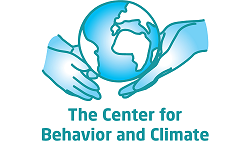Climate News - December 2020
Behavior Change, Social Change, Climate Change
Caroly Shumway, Ph.D.
I am fascinated by the pace of social change. In some cases, change happens at a snail's pace, as in the case of racial equality; but at other cases, social change occurs rapidly, as, for example, the increasing acceptance of LGBTQ citizens since the mid-1990s.
What social changes would help to move our society to fully addressing climate change?
1. Make it socially normal to drive an electric car. Factors holding back the use of an electric or hybrid car are price, range, and social norms. Fortunately, as reported this week by the Associated Press, price and range are being addressed. Innovations in battery storage enable electric cars to be priced the same as gas-fueled cars. General Motors plans to produce 30 different electric vehicles in the next 5 years with a range of 400 miles costing less than $30,000. What about social norms? A majority of Americans perceive pro-environmental behavior, such as purchasing an electric car, as more feminine than masculine (Bennett and Williams, 2011), which can inhibit pro-climate behavior. But what if electric cars were branded at least in part for men? Brough et al. (2016) showed that men's' preference for green products significantly increased following either male branding or masculine affirmation about the product. Here too, we are in luck. Hummer recently announced that they are producing an electric truck. Both the Hummer and General Motors announcements will help increase the acceptability and frequency of electric cars among men.
2. Talk about climate solutions with your friends and family. As noted by the 2019 Yale Climate Opinion Survey, most Americans worry about climate change and care about solving it. Yet collectively (as government, businesses, or as citizens), we are not doing enough. One way to increase climate action is just to talk about climate change and climate solutions with your friends and family. Take heart and courage in knowing that others feel the same way you do! Just spreading the word that more and more Americans care about climate change and support climate solutions helps. The use of this type of social norm, a dynamic norm, has been shown to greatly increase the percentage of people who will engage in a particular behavior. And if you suggest a climate solution that your family or friends don't support, you can either deflect and discuss other solutions they'd more readily accept, or emphasize the non-climate benefits of the solution you mentioned in the first place--such as the reduced cost of future energy bills or improved health. Many climate change solutions are win-win for other policy goals.
If you want to learn more about behavior change and climate change, register now for our upcoming two free webinars on Behavior Change for Climate Action 101 on Dec. 11th and 18th from 11am-noon. The webinars can also be purchased for PSYCH CE credits. Or register for our new course, Behavior Change for Climate Action 101!
